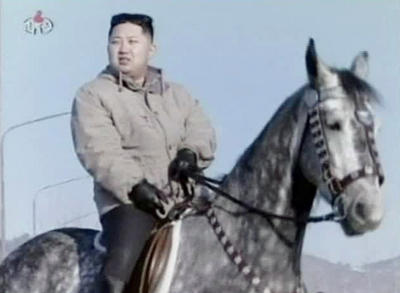Anything is now possible. The range of possible scenarios runs from benign to apocalyptic. The world wants North Korea to come in from the cold and embrace peace and reform. That seems unlikely, alas. The Kim regime is heavily invested in an avowed military-first policy, and in continuity — despite marching down a cul-de-sac. The mighty Korean People’s Army (KPA), whose clout grew under Kim Jong-il, has much to lose from any outbreak of peace.
China is the key power. It could have been South Korea, had not President Lee Myung-bak’s hard line eclipsed the former sunshine policy of engagement. That was ill-advised, for it left Seoul with no influence in Pyongyang — which retaliated viciously, sinking a Southern ship and shelling an island last year. And it left a vacuum, which Beijing hastened to fill.
The Chinese will press for economic reforms, and probably get them — at long last. Boosting a broken economy is one way for Kim Jong-un to make himself more popular. But the fear is that he, or the generals behind him, may instead choose to make a splash with a provocation.
That could be a fresh nuclear test or long-range missile launch. More risky, as hopefully they realise in Pyongyang, would be another attack on South Korea. That would be third time unlucky. With two elections upcoming, President Lee cannot afford to look weak. This time Seoul would strike back, hard — with the risk of hostilities escalating out of control.
Another dilemma for South Korea, and its US and Japanese allies, is what to do in the event of instability in the North. Kim Jong-un’s succession might not succeed. Will Pyongyang’s elite really entrust their future to an untried youth, with only his genes to recommend him?
Aidan Foster-Carter is Honorary Senior Research Fellow in sociology and modern Korea at Leeds University and a freelance consultant, writer and broadcaster on Korean affairs.
This article first appeared here in The Telegraph, UK.

